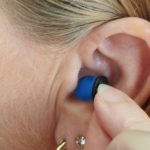What causes bedwetting in children?
Bedwetting or enuresis is defined as incontinence of urine during sleep. During the day, the control of urine is normal. Bedwetting is normally seen in children up to the age of 3 years. It is abnormal after the age of three years. It is seen in 15% of children at the age of 5 years and 1% of the children at age 15.
Causes of bedwetting in children
There are various causes of bedwetting. In 50% of cases, there is delayed maturation of the nervous system or the nerve supply to the urinary bladder. A psychological cause has been found in about 30% and the remaining 20% of cases are due to disorders of the urinary bladder. Most of the children achieve control of their urination by the age of ten years. It has also been proposed that many children suffering from bedwetting have increased the production of urine at night. The imaging studies (ultrasonography) have shown that the urinary bladder capacity of these children may be reduced or normal. Bedwetting may be a manifestation of an attention-seeking phenomenon in the case of the birth of a younger sibling. It has also been found that arousal from sleep is difficult in these patients, and more in boys than girls. Delayed maturation of bladder function is responsible in a fraction of patients.
Bladder training
The bladder training of a child is recommended after the age of one and a half years. Attempts of training before this age usually fail and may be harmful to the child. Any undue pressure exerted by the parents may result in mental tension in a child, and an inability to achieve cerebral (related to the brain) control over the bladder.
Features
Bedwetting may occur daily or occasionally. A normal volume of urine is passed without the child waking up during the act. The urine is usually clear and without any burning sensation or fever. The results of urine examination and imaging of the urinary bladder by ultrasonography are usually normal.
These children feel even more disturbed when they start going to school. They find it difficult to stay overnight at their friend’s place (no night–outs) because of social fear of their bedwetting habit. They may then become introverted. Any punitive action by their parents may aggravate bedwetting.
Treatment
If the habit of bed-wetting continues beyond the age of three years then a physician consult is required.
Behavior modification – at the level of parents, they should follow some of the general principles of management and ensure the cooperation of the child.
- The child should not be given fluids like a glass of milk immediately before going to bed at night.
- The child should be taught to go to the toilet daily before going to bed. That will ensure an empty urinary bladder before sleeping.
- An observation by the parents will indicate the usual time of bedwetting at night. They should wake up the child daily, before the usual time of bedwetting so that the child can pass urine in the toilet.
- The child should be suitably rewarded for keeping dry at night. A daily charting can be done to keep track and positive responses (dry nights) should be highlighted.
- Punishment or humiliation by the parents should be discouraged.
Drug therapy – when the general measures fail to control bed-wetting, drug therapy should be added.
- Imipramine is a tricyclic antidepressant and is commonly used for treatment. It is successful in curing 50–70% of patients and is considered the drug of choice. The usual dosage is 25 mg given before dinner. If required, it may be increased up to 50 mg.
- Desmopressin may also be used for treatment.
Bedwetting is normal until the age of three. After that time, parents should do their best to help their children overcome this habit. In case of no fast results, a physician should be consulted.




























